1. 1.7 Project Initiation Stage Assessment
1.1. Prepare Initiation Stage Assessment
1.2. Review Initiation Stage Assessment
1.3. Follow-Up Initiation Stage Assessment
1.4. Compile Project Initiation Report
2. Introduction
2.1. humor being one of the complex intersections amount the hierarchies of race,class, gender, and sexuality at work within poverty stricken communities in Rio de janeiro
2.1.1. Recruit Project Sponsor
2.1.2. Recruit Project Manager
2.1.3. Review Related Projects and Lessons Learned
2.1.4. Prepare Project Initiation Plan
2.1.5. Brief the Initial Project Team
2.1.6. Review Project Kick-off Plans and Presentation Map
2.1.7. Hold Project Kick-off Meeting
2.2. local life of Rios favelas/shanty towns
2.2.1. Establish Project Objective
2.2.2. Establish Project Scope
2.2.3. Map Requirements
2.2.4. Map Solution
2.2.5. Map Training Requirement
2.2.6. Review Project Scope
2.3. womens popular culture
2.3.1. Determine Project Approach, Stages and Steps
2.3.2. Estimate Project Duration
2.3.3. Establish Resource Requirements
2.3.4. Prepare Project Schedule and Budget
2.3.5. Prepare Work breakdown structure
2.3.6. Document Success Criteria
2.3.7. Review Project Schedule
2.4. Gloria her informent
2.4.1. Identify Project Resources
2.4.2. Recruit Project Steering Committee
2.4.3. Recruit Project Coordinators
2.4.4. Identify / Recruit Key Stakeholders
2.4.5. Determine Training Requirements
2.4.6. Map the Project Organization Chart
2.4.7. Review Project Organization
2.5. humor as one of the organizing themes but not the central focus
2.5.1. Establish Project Administration Procedures
2.5.2. Establish Quality Control Procedures
2.5.3. Establish Progress Control Procedures
2.5.4. Establish Change Control Procedures
2.5.5. Establish Issue Resolution Procedure
2.5.6. Review Project Control Procedures
2.6. forms of humor
2.6.1. as a form of power
2.6.2. social movements
2.6.3. black humor
2.6.4. resistence
2.6.5. Review Business Case
3. Chapter 1
3.1. First arrival
3.1.1. 1990
3.1.2. celebration
3.1.3. mixture of social classes
3.2. scholar in training
3.2.1. before becoming interested in brazil she worked in mexico (in college)
3.2.2. expose imerialism
3.2.3. 2 and a half years in Ecuador
3.2.4. Ecuador brought interest in Brazil
3.2.5. Conduct Meetings
3.2.6. Follow-up Meeting
3.3. carnival
3.3.1. Guiller Mopriet brought about curiosity about people living in shanty towns and women in particular
3.3.2. carnival as a looking glass
3.3.3. carnival in context-historical, community, ambiguous event, political subcultures, ritual
3.3.4. survey research
3.4. habits of class and domination
3.4.1. Update Project Schedule
3.4.2. Update Budget / Costs
3.4.3. Conduct Team Status Review
3.4.4. Create Status Report
3.5. return to laughter
3.5.1. Request Changes
3.5.2. Identify Alternative Solutions
3.5.3. Conduct Steering Committee Meeting
3.5.4. Document Change Responses
3.5.5. Implement Change(s)
3.6. rediscovering Rio
3.6.1. Identify Project Issues
3.6.2. Assess Impact of Issues
3.6.3. Assign Resources
3.6.4. Resolve Issue
3.7. real people in real context
3.7.1. Determine Next Stage Tasks
3.7.2. Determine Task Dependencies
3.7.3. Estimate Effort
3.7.4. Allocate Resources
3.7.5. Prepare Next Stage Schedule
3.7.6. Prepare Next Stage Budget
3.7.7. Update Project Schedule
3.7.8. Update Project Budget
3.7.9. Review Business Case
3.7.10. Review Project Organization
3.7.11. Review Project Scope
3.7.12. Prepare Stage Assessment
3.7.13. Review Stage Assessment
3.7.14. Follow-Up Stage Assessment
3.7.15. Compile Stage Closure Report
4. Project Closure
4.1. 3.1 Final Product Evaluation
4.1.1. Prepare Product Evaluation
4.1.2. Conduct Product Evaluation
4.1.3. Initiate Maintenance Process
4.2. 3.2 Project Completion
4.2.1. Prepare for Project Closure Meeting
4.2.2. Conduct Project Closure Meeting
4.2.3. Follow Up Project Closure Meeting
4.3. 3.2 Process Improvement
4.3.1. Prepare Project Review
4.3.2. Conduct Project Review
4.3.3. Implement Process Improvement
